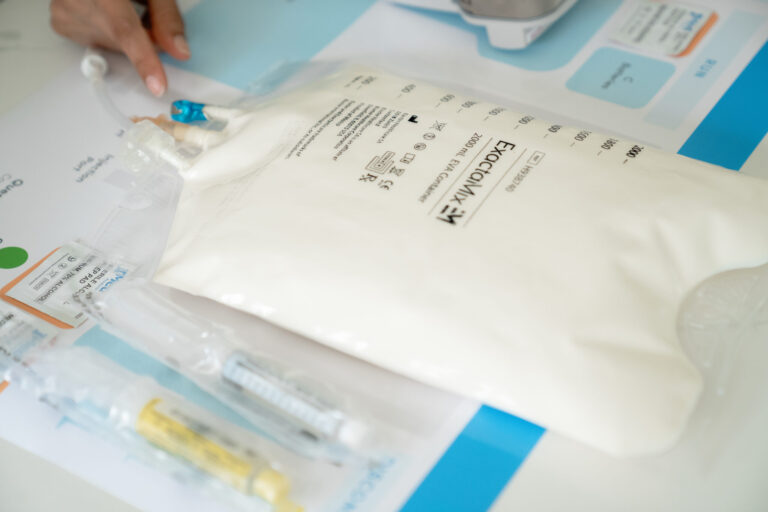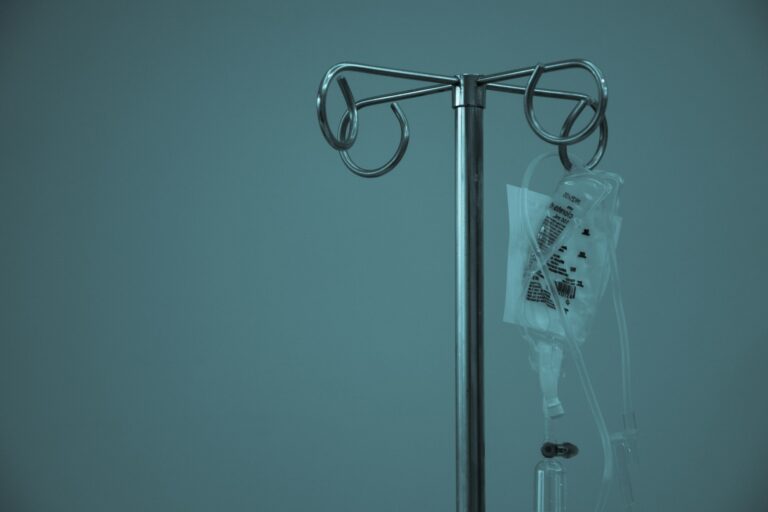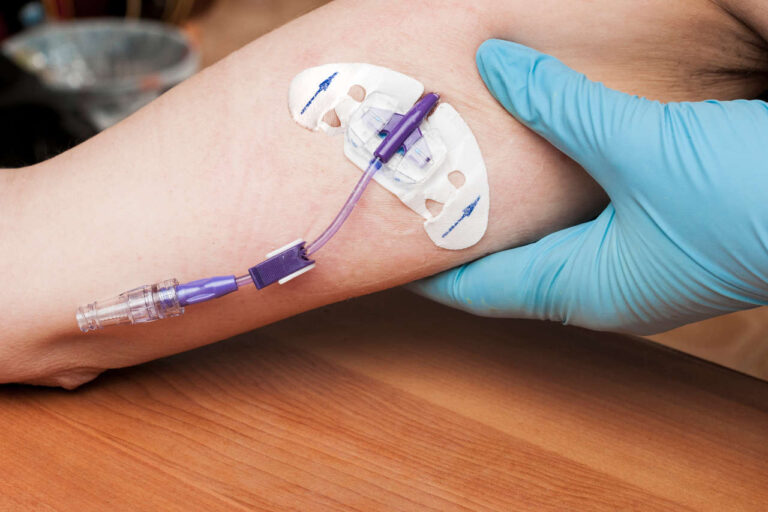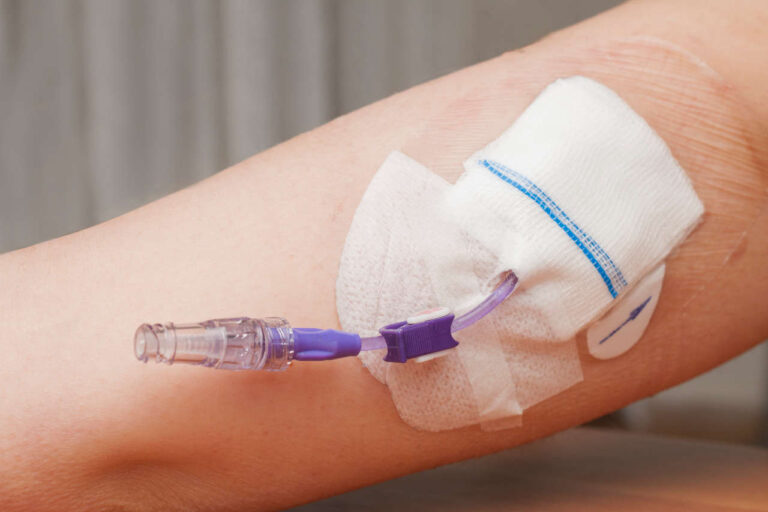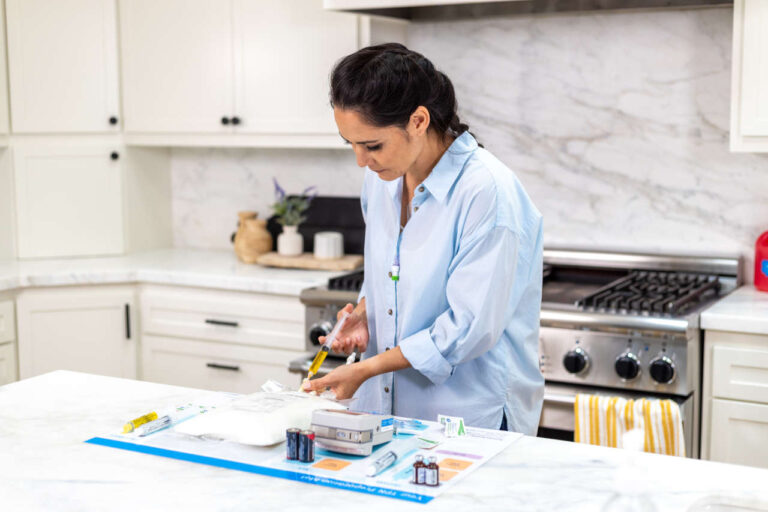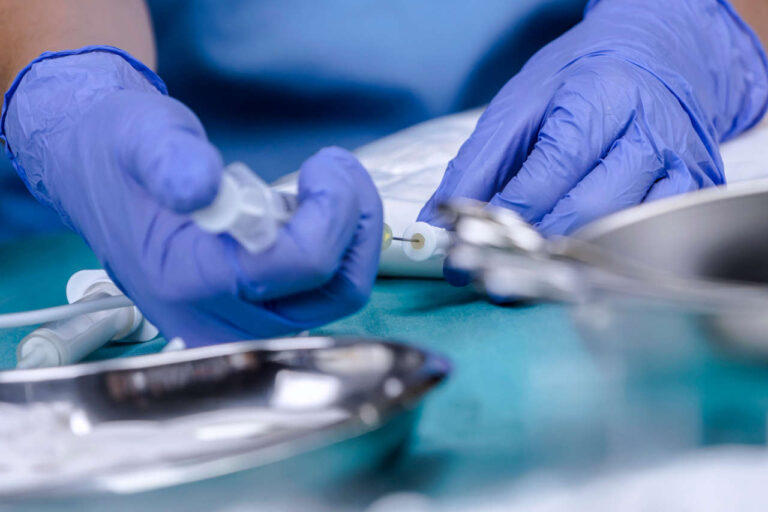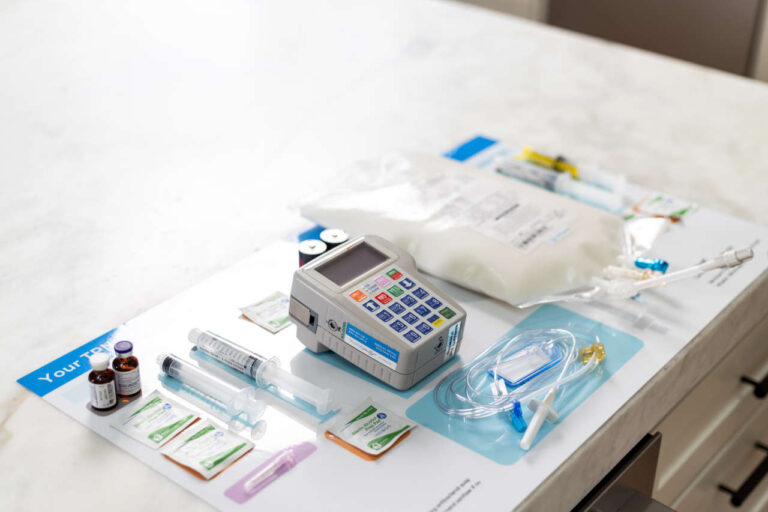
TPN, también conocido como nutrición parenteral totalEs una terapia farmacológica intravenosa que se utiliza para personas con problemas digestivos o que no pueden ingerir alimentos por vía oral. TPN contiene una mezcla de diversos componentes para satisfacer las necesidades nutricionales o dietéticas de una persona, incluyendo carbohidratos, proteínas, grasas, vitaminas, minerales y otros oligoelementos.
Fluidos intravenosos totalmente disponibles
Disponibilidad constante, atención ininterrumpidaSin duda, el TPN es una terapia vital que suministra nutrientes directamente al torrente sanguíneo. Sin embargo, dado que el método de ingesta de alimentos y el proceso metabólico cambian repentinamente debido al TPN, el cuerpo puede presentar algunas complicaciones como respuesta al cambio. La terapia con TPN debe usarse durante el menor tiempo posible y el cambio a... terapia enteral (oral, sonda de alimentación) Debe realizarse tan pronto como el paciente pueda. En este blog, analizaremos las cuatro complicaciones metabólicas más comunes que pueden surgir con TPN y cómo abordarlas o prevenirlas.
¿Qué se entiende por complicaciones metabólicas y por qué ocurren?
El metabolismo es la reacción química que ocurre en nuestro cuerpo para convertir los nutrientes presentes en los alimentos en energía. Cuando el metabolismo normal se altera por cualquier motivo, como una enfermedad, un tratamiento, una terapia farmacológica o cualquier otro factor externo, puede causar complicaciones, comúnmente conocidas como complicaciones metabólicas.
Las complicaciones metabólicas suelen implicar desequilibrios o alteraciones en los niveles de electrolitos, hormonas, nutrientes y otras sustancias necesarias para diversas funciones corporales. Estos desequilibrios pueden provocar complicaciones metabólicas, como hiperglucemia y disfunción hepática. síndrome de realimentación, y desequilibrios electrolíticos.
Las 4 principales complicaciones metabólicas de TPN y cómo prevenirlas
Las 4 complicaciones metabólicas más comunes de TPN son:
Hiperglucemia (nivel alto de glucosa en sangre)
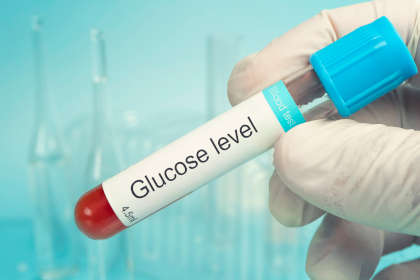
La nutrición parenteral total se formula comúnmente según las necesidades individuales del paciente. Como Soluciones TPN contienen glucosa, las formulaciones parenterales totales con mayores cantidades de glucosa pueden aumentar los niveles de azúcar en la sangre del paciente, provocando hiperglucemia.
Para prevenir o reducir el riesgo de hiperglucemia, es fundamental controlar la glucemia durante el tratamiento con TPN y usar formulaciones con niveles bajos o moderados de glucosa. Si se produce hiperglucemia por el uso de TPN, se puede tratar con ciertos medicamentos, como la insulina, para reducir los niveles de glucosa. Además, es necesario controlar cuidadosamente los niveles de azúcar en los pacientes hasta su completa recuperación.
Desequilibrio electrolítico
Otra complicación metabólica y una preocupación importante asociada con el uso de TPN es el desequilibrio electrolítico. La administración de TPN puede alterar los niveles de electrolitos en el cuerpo, como calcio, sodio, magnesio y potasio, lo que puede provocar complicaciones adicionales, como arritmias, disfunción neuromuscular y otras.
La prevención del desequilibrio electrolítico requiere una evaluación estrecha de los niveles de electrolitos, un seguimiento regular y ajustes de dosis o formulación según la condición del paciente con la colaboración de médicos, farmacéuticos y nutricionistas.
Habla con un especialista
Acerca de la asistencia para copagosSíndrome de realimentación
El síndrome de realimentación es una afección metabólica que se produce cuando un paciente con desnutrición o privación grave de nutrientes recibe una nutrición excesiva y rápida, como en el caso de TPN u otras formas de terapia dietética. El síndrome de realimentación causa desequilibrios electrolíticos y deficiencias vitamínicas, y también puede provocar convulsiones, coma o incluso la muerte.
Por lo tanto, para prevenir el síndrome de realimentación, es crucial adoptar un enfoque gradual en la terapia nutricional, principalmente en pacientes con desnutrición o privación grave de nutrientes, así como en personas que han seguido dietas extremas o ayuno. Antes de administrar TPN, el médico o farmacéutico debe preguntar sobre el historial médico del paciente para prevenir este tipo de situaciones.
Disfunción hepática
La disfunción hepática por TPN puede ocurrir como resultado de un desequilibrio de grasas (lípidos) y una infusión excesiva de glucosa o lípidos, lo que puede comprometer las funciones hepáticas del paciente.
Para reducir el riesgo de disfunción hepática relacionada con TPN, los profesionales de la salud minimizan la administración y formulación excesiva de lípidos y glucosa en la terapia con TPN, y monitorizan cuidadosamente los niveles hepáticos para garantizar que no se produzcan daños. La transición a un enfoque de nutrición enteral ayudará a disminuir el riesgo de disfunción hepática en los pacientes.

